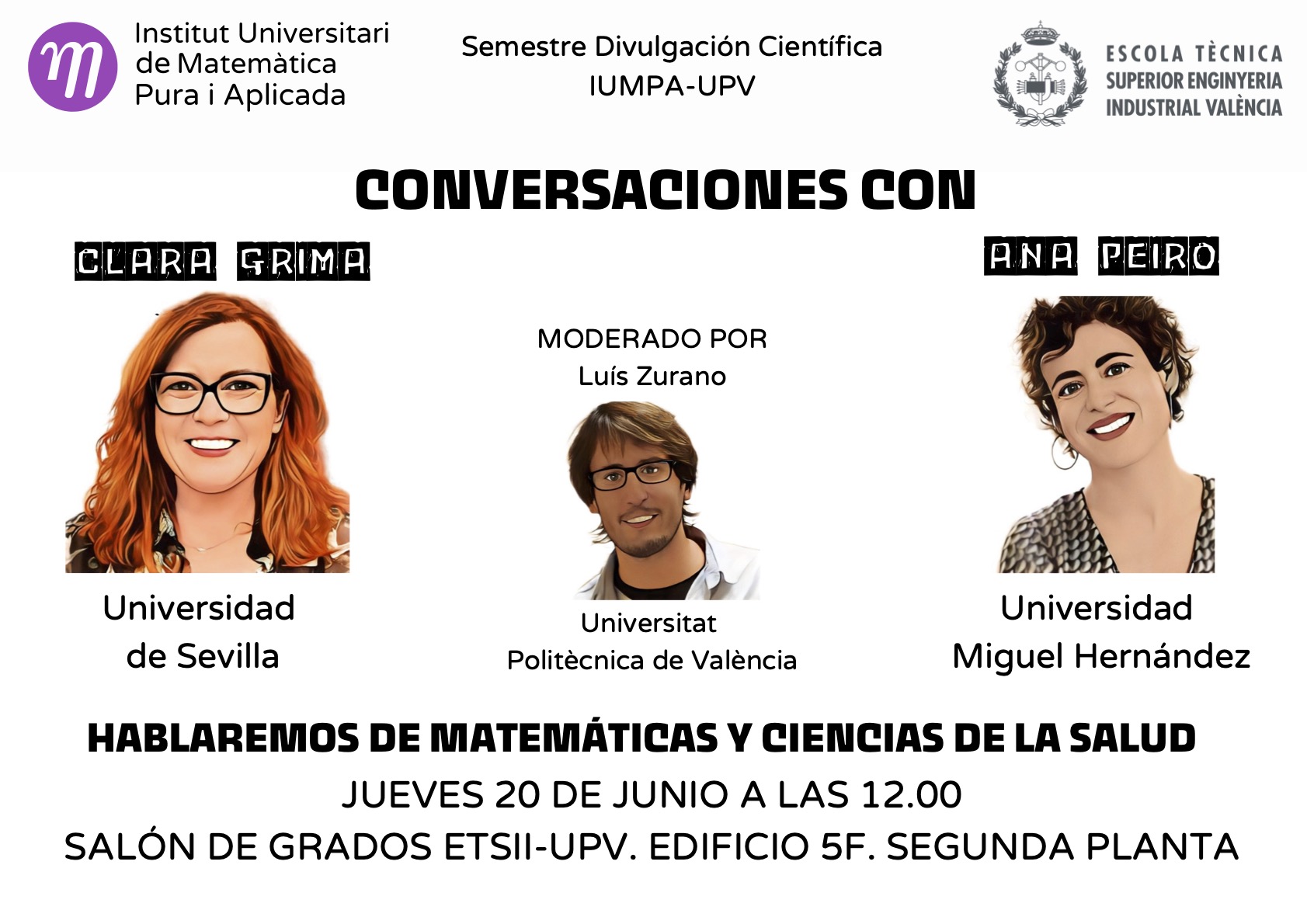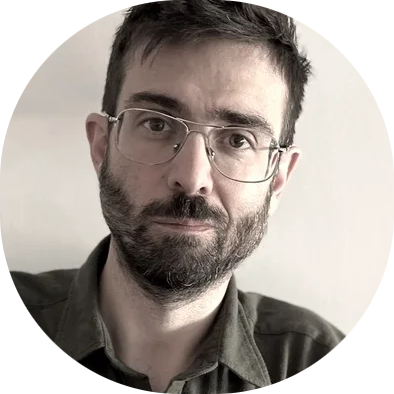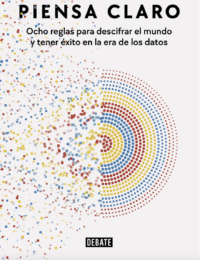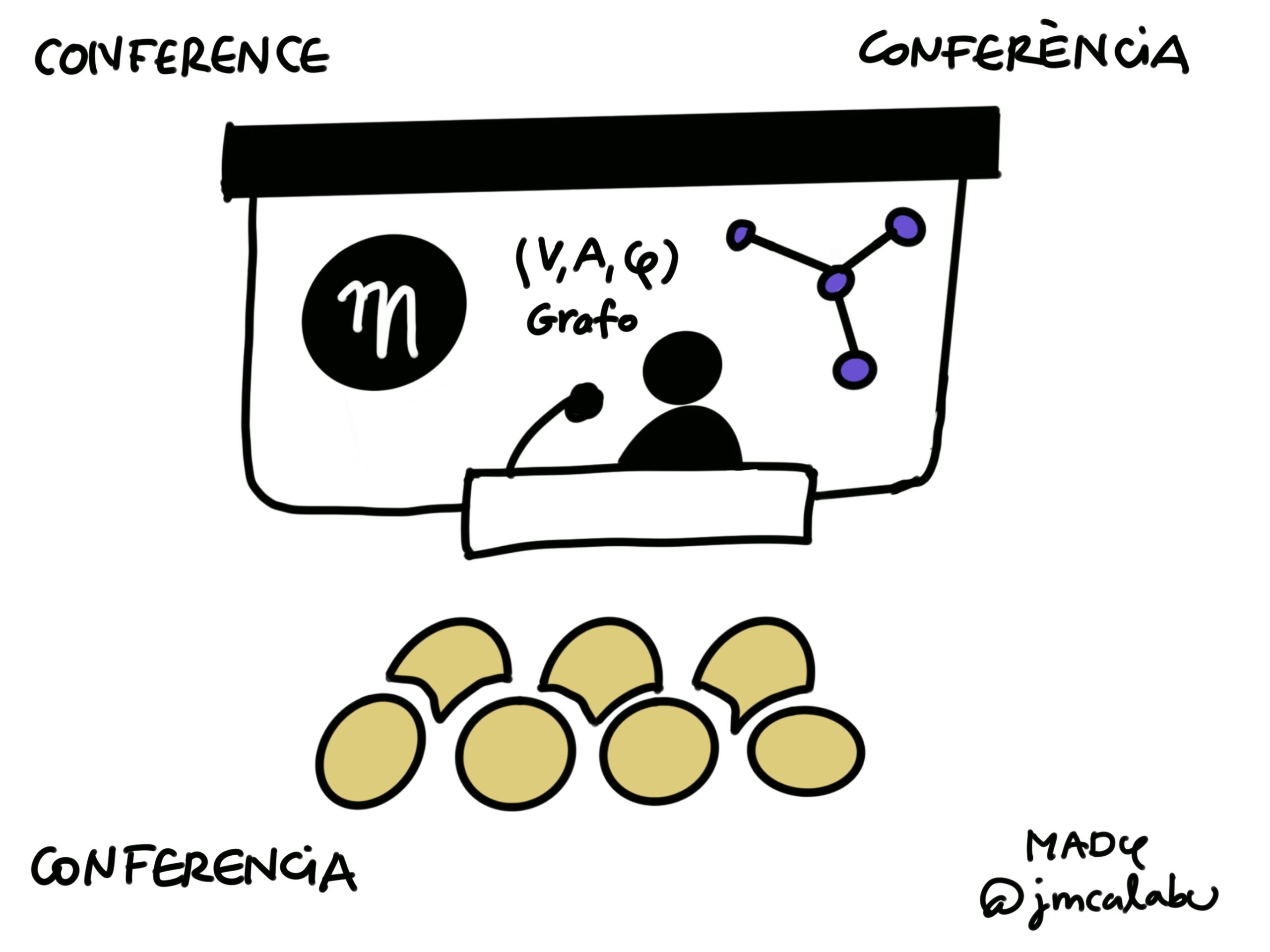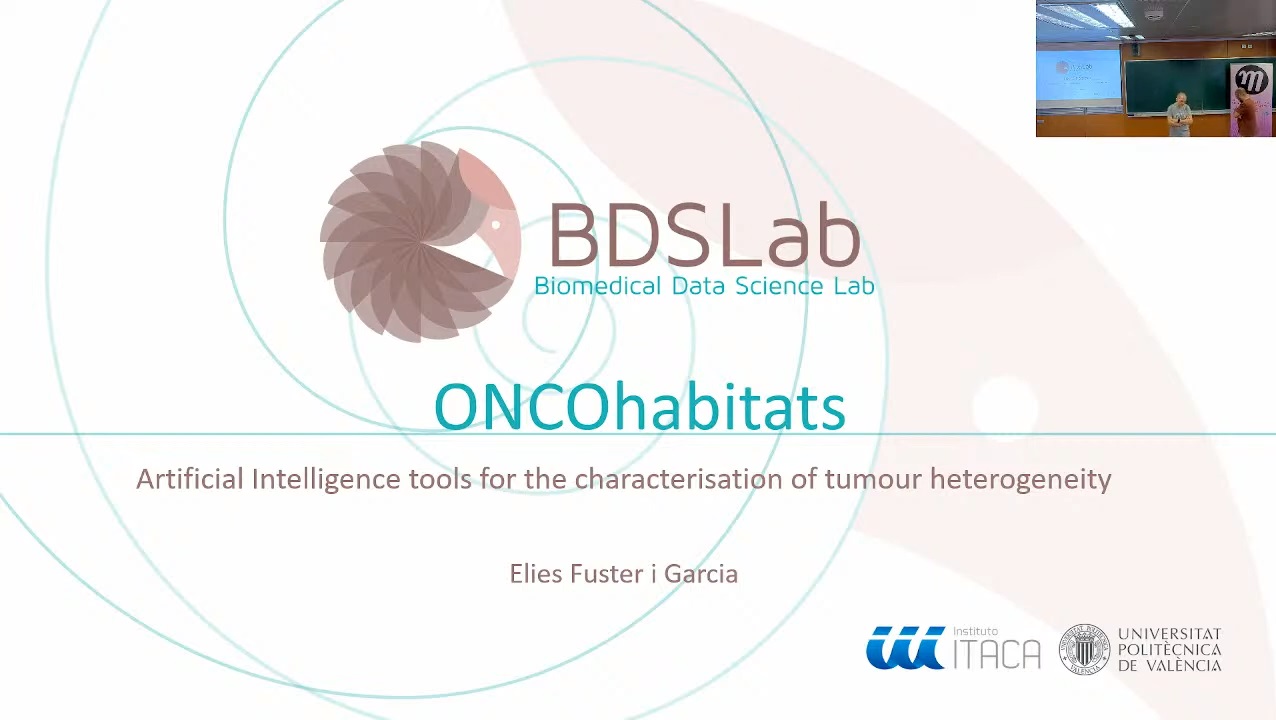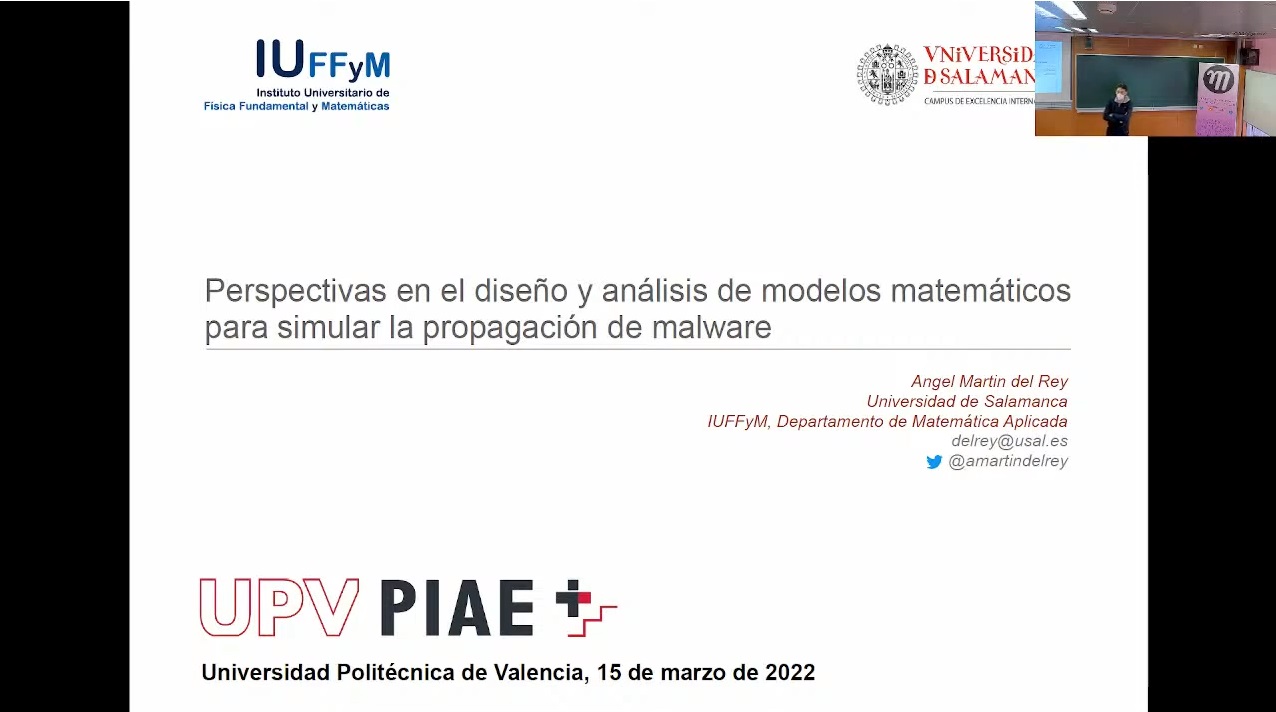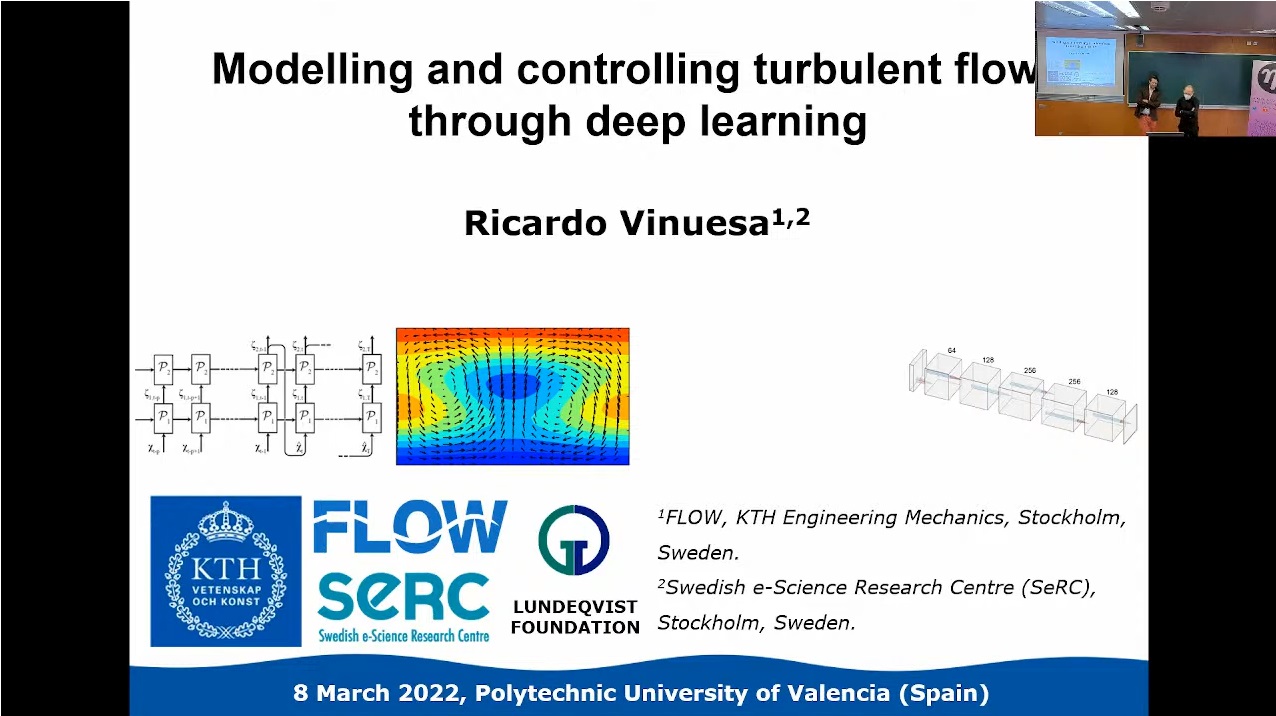2024 Scientific Outreach Semester
June 20, 2024 at 12:00 PM
Salón de Grados ETSII-UPV
Building 5F, second floor
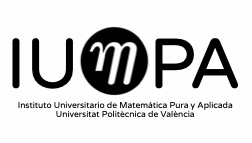
Colloquium
Clara Grima (U. de Sevilla)
https://es.wikipedia.org/wiki/Clara_Grima
Ana Peiró (U. Miguel Hernández)
https://www.mujerydolor.es/mujer-y-dolor/junta/ana-peiro/
Quantum Computing Semester 2023
November 8 and 9, 2023
Room A10, Building 4A, ETSICCP

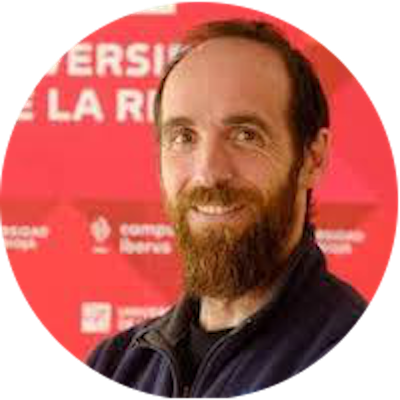
🎓 Eduardo Sáenz de Cabezón
Universidad de La Rioja
A professor in the Department of Mathematics and Computer Science at the University of La Rioja, he conducts his research in the field of Computational Algebra.
A renowned science communicator in Spain and Latin America, he has published several books to make mathematics more accessible to the general public.
He was also the winner of the FameLab science monologue competition in 2013 and a founding member of the group Big Van Científicos Sobre Ruedas. He hosts the YouTube channel "Derivando," which has over 1.1 million followers, and collaborates with various media outlets, such as the show "Órbita Laika" on La 2, which he presents, and the program "Gente Despierta" on RNE.
YouTube Channel:
Course: Introduction to Quantum Computing
A four-hour course focusing on the mathematical fundamentals of quantum computing.
Schedule:
- Wednesday, November 8, from 16:00 to 18:00
- Thursday, November 9, from 12:30 to 14:30
Location: Room A-10, Building 4A, ETSICCP
Course Link
https://www.youtube.com/watch?v=KnSjaM7Tb-Q
May 4th at 12:30 PM
IUMPA Seminar
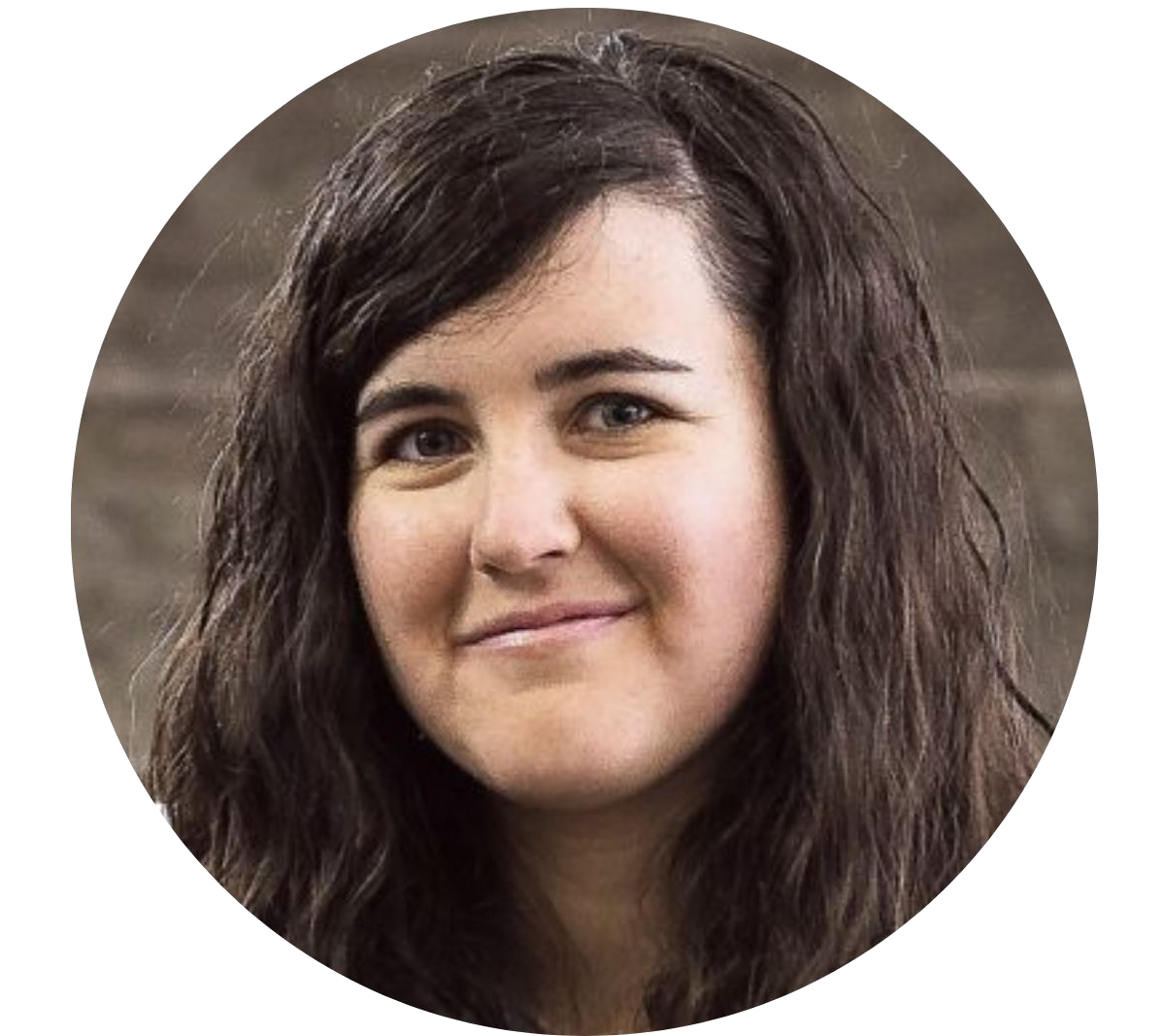
🎓 Ángela Capel
Junior Professor (W1)
Eberhard Karls Universität Tübingen (Germany)
When does a quantum many-body system mix rapidly?
A quantum memory can be described by the evolution of an open quantum many-body system in a thermal bath with which it weakly interacts, which can be modelled by a quantum Markov semigroup. The time that it takes for an initial state on the system to reach the equilibrium with the bath is called mixing time. The mixing time of these Markovian dissipative evolutions of open quantum many-body systems represents in particular the time that would take for some quantum information stored in a quantum memory to be destroyed, and it can be bounded using optimal constants of certain quantum functional inequalities, such as the logarithmic Sobolev constant. For classical spin systems, the positivity of such constants follows from a mixing condition on the Gibbs measure, via quasi-factorization results for the entropy. Inspired by the classical case, I’ll present a strategy to derive the positivity of the logarithmic Sobolev constant associated to the dynamics of certain quantum systems from some clustering conditions on the Gibbs state of a local, commuting Hamiltonian.
In 2022, Ángela Capel received one of the awards in the eighth edition of the Vicent Caselles Awards, annually granted by the Royal Spanish Mathematical Society and the BBVA Foundation. According to the jury, she was recognized “for the quality of the results obtained in her research, published in internationally renowned journals, as well as for their pioneering nature and the undeniable impact they will have”.
Artificial Intelligence Semester 2022
Data Analysis and Communication at EL PAÍS

December 1, 2022. Assembly Hall 1, ETSII-UPV
Engineer and Doctor in Automation and Industrial Informatics from the Polytechnic University of Valencia, he works in the Visual Narratives team at EL PAIS, creating graphics, data, and analyses about current events. Since 2019, he has been publishing a newsletter, which in 2022 became the first subscriber-only bulletin of El País. He also analyzes polls during election periods. He has published statistical models to predict results in Spain, Mexico, France, and the United Kingdom, which have been cited in outlets such as The Washington Post, The Guardian, The Wall Street Journal, and the Financial Times.
What do your data say and why should I care?
In more and more professions, data has ceased to be scarce: merely having it is no longer sufficient to stand out, and now the difference lies in what you can do with it.
How do you ask the right questions? What judgment errors should you guard against? Meanwhile, amidst all this, another commodity has become exceedingly rare: our time. This is why communication is increasingly crucial. We live in an attention economy, a fierce battleground on your mobile phone, among the apps you use or the newspapers you visit, but also in your boss’s email inbox, where your messages and reports will compete with everything else.
In this talk, I share my experience as an engineer working at EL PAÍS, telling stories with numbers that are both useful and interesting, from pandemics to elections and World Cups.
Before entering journalism, he spent 10 years researching and teaching at the university level. He co-founded Politikon with some friends, was involved in the launch of El Español, and contributed to Jot down. He has recently published “Piensa Claro,” a book featuring eight rules for analyzing and deciphering the world around us. It’s a compilation of ideas particularly relevant in the age of data.
Other activities
Conversaciones con Clara Grima y Ana Peiró. Jueves 20 de junio a las 12.00 horas en el Salón de Grados de la ETSII-UPV (Edificio 5F, segunda planta).
Coloquio entorno a las matemáticas y ciencias de la salud en el que el periodista Luis Zurano (UPV) entrevistará a Clara Grima (Universidad de Sevilla) y Ana Peiró (Universidad Miguel Hernández). Más info...
CURSO DE INTRODUCCIÓN A LA COMPUTACIÓN CUÁNTICA
8 y 9 de noviembre. Aula A-10, Edificio 4A, ETSICCP Curso de cuatro horas de duración en torno a los fundamentos matemáticos de la computación cuántica. HORARIO* Miércoles 8 de noviembre de 16:00 a 18:00* Jueves 9 de noviembre de 12:30 a 14:30 LUGARAULA A-10, EDIFICIO...
Conferencia Ángela Capel: When does a quantum many-body system mix rapidly?
A quantum memory can be described by the evolution of an open quantum many-body system in a thermal bath with which it weakly interacts, which can be modelled by a quantum Markov semigroup. The time that it takes for an initial state on the system to reach the...
A Graph-Based Method for Soccer Action Spotting Using Unsupervised Player Classification. Alejandro Cartas, Universitat Pompeu Fabra
In this presentation we talk about our graph-based model for action spotting in soccer games. The goal of action spotting is to identify the specific time an action occurs. Our model represents players, referees, and goalkeepers as nodes in a graph and connects...
Conferencia Niko Spronk. A survey of amenability of operator algebras, and algebras of abstract harmonic analysis. Lunes 28 de noviembre, 12:00 horas.
In this talk we settle this question: given two metrizable spaces X and Y and a subfamily of C(X,Y), what are necessary and sufficient conditions for there to exist compatible metrics d on X and q on Y so that the family becomes Lipschitzian...
Conferencia Elies Fuster. Herramientas de IA para la caracterización de la heterogeneidad tumoral.
El glioma es uno de los tipos más comunes de tumores primarios del cerebro, y representa más del 70% de todos los tumores cerebrales malignos. Debido al perfil molecular y la biología extremadamente compleja y heterogénea del glioma, el enfoque de "el mismo...
Conferencia Martín del Rey. Perspectivas en el diseño y análisis de modelos matemáticos para simular la propagación de malware.
Resumen: El objetivo de esta charla es realizar un análisis crítico de los modelos matemáticos propuestos hasta la fecha para simular la propagación de código malicioso (malware) y explicitar las que, a mi juicio, son las principales líneas de investigación futura en...
Conferencia Ricardo Vinuesa. Modelling and controlling turbulent flows through deep learning.
Abstract: The a The advent of new powerful deep neural networks (DNNs) has fostered their application in a wide range of research areas, including more recently in fluid mechanics. In this presentation, we will cover some of the fundamentals of deep learning applied...

